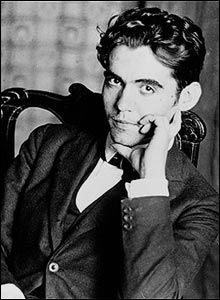If it isn’t the birds
covered with ashes,
if it isn’t the cries beating on the windows of the wedding,
it must be the delicate creatures of air
that pour out new blood in the unending night.
But no, it isn’t the birds
because the birds are ready to be oxen;
they can be white rocks with the aid of the moon
and are always wounded youths before
the judges raise the sheet.
Everyone understands the grief that comes with death
but true grief is not present in the spirit.
It isn’t in the air or in our lives
or in these terraces full of smoke.
True grief that keeps things awake
is a small infinite burn
in the innocent eyes of other systems.
An abandoned suit weighs so much on the shoulders
that many times the sky gathers them in rugged herds.
And the women who die in childbirth know in their final hour
that every rumor will be stone and every footprint pulse.
We ignore that thought has outlying boroughs
where philosopher is devoured by Chinamen and caterpillars.
And some idiot children have found in the kitchen
some swallows on crutches
that knew how to say the word love.
No, it isn’t the birds.
It isn’t a bird that expresses the clouded pond-like fever
or the longing for murder that oppresses us each minute
or the metalic suicidal rumor that gives breath to each dawn.
It’s a capsule of air where the whole world hurts us,
it’s a small living space to the crazy unison of light,
it’s an undefinable scale where clouds and roses forget
the Chinese clamor that bustles on the docks of blood.
Many times I’ve lost myself
in order to search for the burn that keeps things awake
and I’ve only found sailors leaning over the railing
and small creatures of the sky buried in the snow.
But real grief was in other plazas
where chrystallized fish agonized inside the tree trunks;
plazas of a strange sky for the ancient untouched statues
and for the tender intimacies of volcanoes.
There’s no grief in my voice. Only my teeth exist,
teeth that go silent in the isolation of black satin.
There’s no grief in my voice. Here only the earth exists,
the earth with the doors of forever
that lead to the shame of fruit.
